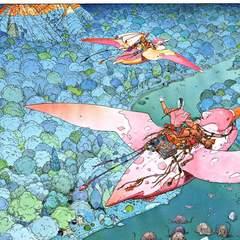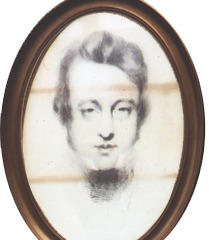Walter Savage Landor Quotes - Page 2
Walter Savage Landor (1853). “Imaginary conversations of Greeks and Romans”, p.161
Walter Savage Landor (1853). “Imaginary Conversations of Greeks and Romans”, p.154
Walter Savage Landor (1846). “The Works of Walter Savage Landor”, p.474
Walter Savage Landor (1853). “Imaginary Conversations of Greeks and Romans”, p.428
Walter Savage Landor (1853). “Imaginary Conversations of Greeks and Romans”, p.231
We fancy we suffer from ingratitude, while in reality we suffer from self-love.
"Works: Indexes. Table of first lines. Imaginary conversations".
Walter Savage Landor (1853). “The works of Walter Savage Landor [ed. by J. Forster].”, p.524
Walter Savage Landor (1834). “Citation and Examination of William Shakspeare, Euseby Treen, Joseph Carnaby and Silas Gough, Clerk: Before the Worshipful Sir Thomas Lucy, Knight, Touching Deer-stealing on the 19th Day of September in the Year of Grace 1582, Now First Published from Original Papers”, p.177
When a woman hath ceased to be quite the same to us, it matters little how different she becomes.
Walter Savage Landor (1868). “Indexes. Table of first lines. Imaginary conversations”, p.9
Walter Savage Landor (1824). “Imaginary Conversations of Literary Men and Statesmen”, p.351
Walter Savage Landor (1856). “Selections from the Writings of Walter Savage Landor”, p.300
Walter Savage Landor (2016). “Delphi Collected Poetical Works of Walter Savage Landor (Illustrated)”, Delphi Classics
A man's vanity tells him what is honor, a man's conscience what is justice.
Walter Savage Landor (1876). “Dialogues of sovereigns and statesmen”, p.50
Walter Savage Landor (1853). “The Works of Walter Savage Landor”, p.215
He who first praises a book becomingly is next in merit to the author.
Walter Savage Landor (1824). “Imaginary Conversations of Literary Men and Statesmen”
Walter Savage Landor (1863). “Heroic idyls, with additional poems”, p.230
Walter Savage Landor (1829). “Barrow and Newton. Peleus and Thetis. The King of Ava and Rao-Gong-Fao. Photo Zavellas and his sister Kaido. Epicurus, Leontion, and Ternissa. The Empress Catharine and Princess Dashkoff. William Penn and Lord Peterborough. Miguel and mother. Metellus and Marius. Nicolas and Michel. Leofric and Godiva. Izaac Walton, Cotton, and William Oldways”, p.426
Walter Savage Landor (1856). “Selections from the Writings of Walter Savage Landor”, p.238
He who brings ridicule to bear against truth finds in his hand a blade without a hilt.
Walter Savage Landor (2016). “Delphi Collected Poetical Works of Walter Savage Landor (Illustrated)”, Delphi Classics
Walter Savage Landor (1853). “The Works of Walter Savage Landor”, p.154
Next in criminality to him who violates the laws of his country, is he who violates the language.
Walter Savage Landor (1853). “The Last Fruit Off an Old Tree”, p.113







